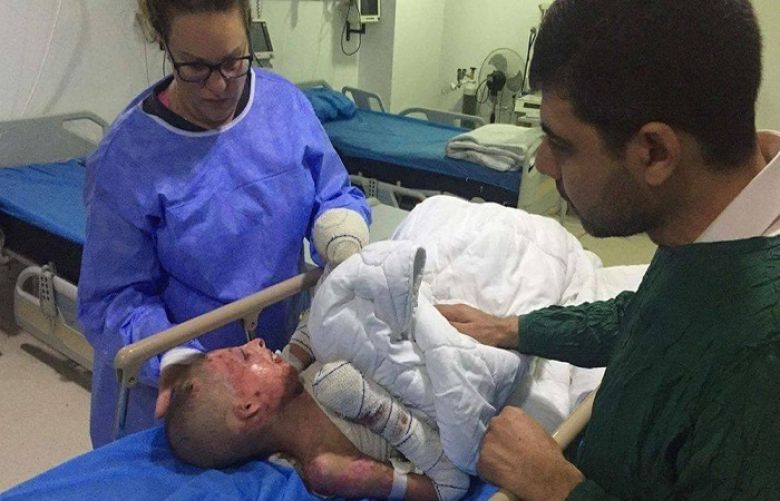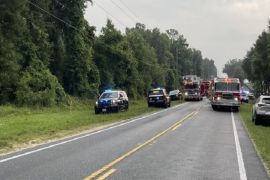Iraq's healthcare system is not able to cope with the large number of victims being wheeled into emergency rooms as the battle against Daesh continues. Most of the medical care comes from NGOs and volunteers.
The Obaid family home in the city of Ramadi was hit by a rocket-propelled grenade launched by the Daesh.
The home was engulfed in fire, leaving 10-year-old Reem with severe burns to 70 percent of her body.
"That kind of percentage of burns, most people wouldn't survive," said Helen Zaho, a volunteer nurse at Nawruz Hospital. "It's almost a miracle that this girl has, particularly in these circumstances."
Reem lost all fingers on one hand and medics fear the other arm may need to be amputated.
Because of the burns, she is also at high risk of infection. "She was the worst affected family member among us," said Reem's father Majeed Mudhar Obaid.
"We suffered at Ramadi hospital. The hospital there is almost destroyed. Reem's condition became worse so we took her home. Then we moved her to Sulaymaniyah and then to Erbil."
For more than three months, the family has moved Reem from one hospital to the next, her father said.
With all of their belongings lost in the fire, they cannot afford her treatment.
While donations and financial support from the hospital have helped, specialised care is needed.
Shriners Hospitals for Children in Boston has agreed to take Reem in and continue care for her wounds, according to Kristen Welch, a volunteer pediatrician at Nawruz Hospital.
Reconstructive surgeries, physical therapy, nutritional support and psychological support will be involved during recovery.
Now, the family must find a way to fly Reem to the United States to receive her treatment.
First she will need a visa. Then, a transatlantic air ambulance or a specialised section on a commercial plane to make the trip.
Other logistical hurdles include the fact that she does not have a passport and is no longer recognisable from former photos.
Without her hand and with the disfigurement from the burns, she is also unable to give finger prints.







